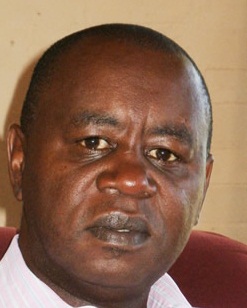
A race to the bottom occurs when the social, political and economic environment of any country deteriorates significantly while the politicians and those in public office continue to use several deception strategies to deny and hide the true facts.
GUEST COLUMNIST VINCE MUSEWE
It’s a life of one calamity after another — as Dambudzo Marechera once wrote about his life.
It is an unending degenerating vicious cycle whose continuance is aided by lies, denials and the attempt to continually reframe the truth. As we face a crisis in Zimbabwe, the deception machinery is at its peak.
We are certainly witnessing continued denials of responsibility for the deteriorating socio-economic conditions by Zanu PF.
We are also seeing the deterioration in the social values and ethics of our society as a whole.
What this does is to actually exacerbate the problems because, instead of us addressing the root causes, we merely address the symptoms, believing that we are actually addressing the problem.
In his paper on systems thinking, Jack Harick explains the various forms of deception strategies which politicians like to continually use. He identifies five common deception strategies used by politicians and these are; false promises, false enemies, pushing the fear button, wrong priorities and secrecy.
- Chamisa under fire over US$120K donation
- Mavhunga puts DeMbare into Chibuku quarterfinals
- Pension funds bet on Cabora Bassa oilfields
- Councils defy govt fire tender directive
Keep Reading
Zanu PF are masters at false promises. We can all remember the famous two million jobs false promise of 2013. But more recently, there is a false promise that the economy will grow next year, while all signs are showing a contracting economy.
There is also the false promise that things will get better because of Chinese and Russian investments in the country, which unfortunately is creating false hope. I also remember President Robert Mugabe boldly claiming that that economy was on the rebound and that civil servants — some of whom will now be retrenched — should be patient. We have become a hopelessly hopeful society.
The biggest false promise for me remains the fallacy that political independence would necessarily emancipate Zimbabweans from oppression of man by man and bring economic freedom to us all. We are all still waiting for that —vachiti nyebera vachiti misa mahara! (They lie to us, giving us empty promises!)
The second deception strategy is where politicians create false enemies and blame them for all the problems while taking undue credit for all the good things that might happen. There is this monumental lie that opposition parties represent Western interests and that the West is always plotting some form of regime change or other. Even some of us have been accused of representing Western interests simply because we differ with Zanu PF on how to create the new Zimbabwe we seek.
There is this incessant and demeaning lie that black people cannot think for themselves and must always be representing other peoples’ interests and views! This lie has been repeated so many times it has become a truth.
Sadly, this form of deception works so well that it has become the central strategy for Zanu PF throughout the years and the State media is the machinery used to perpetuate it.
Pushing the fear button has been the area where Zanu PF continues to excel. Many people have been led to believe that they might lose their land or assets if they dare challenge the status quo. For example, we have even seen farms being repossessed from those who would have been expelled from Zanu PF.
As a result, you have false loyalty among remaining members, especially the patronage brigade, who are trapped within the party even when they disagree.
The other great fear among citizens is of course that of abduction, as happened in the Itai Dzamara case.
Rule by instilling fear works to stifle opposition. As Harick says in his paper: “Fear clouds the judgment, making it all the harder to discern whether there really is an enemy out there. Because we cannot be sure, we play it safe and assume there is at least some risk. Fearful people are more dependent, more easily manipulated and controlled.”
Wrong priorities is another form of deception that we are all well aware of. “Wrong priorities stem from hidden agendas. A hidden agenda is a plan or goal a politician must conceal from the public, due to an ulterior motive,” Harick says.
“For corrupt politicians such matters come easy, they simply manipulate the public through false promises, create a false enemy, push the fear hot button hard and often, repeat the same lie over and over until it becomes ‘the truth’. ”
A good example of this is indigenisation which, in my view, is important, but not urgent. Right now we need to urgently focus on creating jobs, increasing disposable incomes and aggregate demand and attracting new investment flows into the country.
The fifth deception strategy is that of secrecy. There is so much secrecy that we now have a vibrant secret service industry which employs all and sundry. Examples are the adoption of the $1,3 billion Reserve Bank debt, the PSMAS forensic audit, elections, the so-called Chinese mega deals, and many more. The list is endless.
The sad reality is that all these forms of deception have become normal in our society, whether in government or not. Our values and ethics as a society as we all try to fight or hide our poverty, have degenerated to the extent of the abnormal becoming the new normal.
The race to the bottom is accelerating at full speed.
It will certainly take us some time and much effort to re-invent a new Zimbabwe underpinned by an ethically responsible and accountable political leadership. In the meantime, let us not expect things to change by themselves.
lVince Musewe is an economist and author based in Harare. You may contact him on [email protected]











